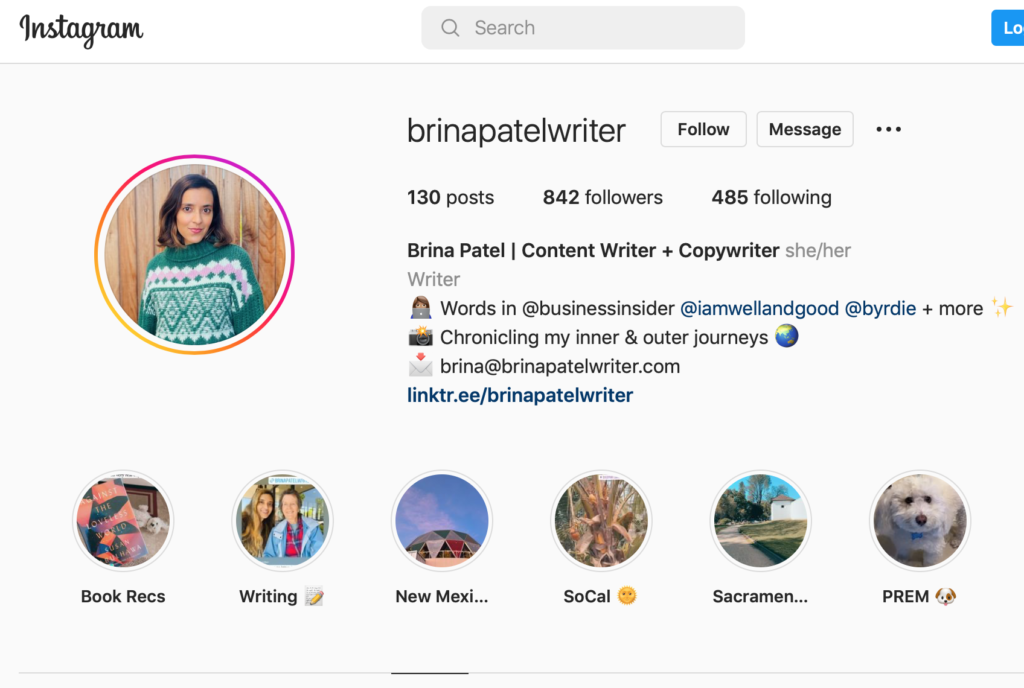So, you want to be a freelance writer?
Congrats! Freelance writing is a rewarding career path with plenty of opportunities for networking, learning, and growing your income… While reaping the benefits of remote work on your own time. Sounds a bit too good to be true, right?
The reality is, you can and will experience each of these benefits. But only if you’re equipped with the right knowledge, especially when you’re a beginner.
When I decided to become a freelance writer almost two years ago, I had no clue where to begin. It took me over a year to feel like I’d finally gotten my bearings and had built my skillset enough to land lucrative freelance writing gigs.
If you’re a freelance writing beginner, here are 7 things you NEED to know before starting.
1. Negotiate
The “starving artist” stereotype often applies to writers for a reason. Unless you’re a technical writer, an accomplished novelist like Stephen King, or have been writing for years, the truth is, writing doesn’t offer a lucrative earning potential in the beginning.
But hear me out.
You can begin to charge more for your services. It may not be a large amount at first, but you’ll get there. When working with editors, clients, or potential employers, always negotiate. The worst thing that can happen is that they say, “no,” and you accept the original payment amount (or look for another job).
In some instances, like if you’re brand spanking new with zero experience with writing, negotiating might not make sense. But if you have portfolio clips, or previous experience in the industry you want to write for, you should be negotiating your fee.
2. Stay away from job boards like Fiverr and Upwork
This tip is controversial, as many people do turn to job boards like Fiverr and Upwork in the beginning. (I’ll admit that I spent time on both of these platforms when I first started out.)
While it is possible to attain success on Fiverr and Upwork in the long term, they’re brutal for beginners.
Think about it. Just about anyone nowadays can call themselves a freelance writer, make a profile on Fiverr and Upwork, and charge pennies for these services. As a matter of fact, many people from countries like India, The Philippines, and Mexico can charge $5-$10 per article because the conversion rate works in their favor.
That leaves those of us in the U.S., and other countries with high costs of living, at a disadvantage. Therefore, in order to keep up, we have to lowball our services just to get clients. Not ideal.
However, if you’re looking for work that will fulfill you emotionally, while also allowing you to develop your skills and earn a decent amount, Fiverr and Upwork are not the way to go.
Look to sites like LinkedIn, where you can apply to thousands of jobs (many of which pay well). Or subscribe to Sonia Weiser’s incredible Opportunities of the Week newsletter, which shares a roundup of pitch callouts, writing jobs, and other gigs twice a week.
3. Optimize your social media profiles
When you’re a freelancer, you are the business. Let me repeat: YOU ARE THE BUSINESS!
One of the key components of building a successful business is having an online presence. And not just any online presence, but one that establishes your professionalism and showcases your talents.
Create a professional account for your business, brand, or service. This could be something simple, like @brinapatelwriter (my Instagram handle). Or, if you offer a specific service, it can be @alyssasmithcopywriting (an example I made up).

4. Build a simple website
Alongside a social media presence, a blog or website can further solidify your credibility and professionalism. Don’t worry about hiring a web designer to create something fancy.
Start off with a simple website builder like Squarespace, and add basic pages to it: a home page, “About Me,” blog, portfolio (if you have one), and “Contact Me.”
Having a blog on your site can help you start practicing your writing skills. It can also establish your niche, so if you plan to write a lot about a specific topic, it can draw an audience of interested readers to your site.

5. Take courses
This is the biggest step I overlooked when I started my freelance writing journey.
You see, I thought that, since I already had decent writing skills, I’d sail through the freelance waters with ease, building my clientele and skillsets in no time.
Boy, was I wrong!
I didn’t take my first freelance writing course until spring of 2022, a year after I started freelancing. After a year of low-paying gigs, inconsistent income, and lack of direction, I realized I needed help. Only after I started taking courses, and treating my freelancing as a business that I was serious about, did I see growth.
Two courses I’d recommend are:
- Elna Cain’s Write Your Way to Your First $1k – includes helpful resources that center around pitching potential clients, determining the best niche, and tips on how to improve your writing (content writing-focused)
- The Copy Posse Own The Inbox Challenge – a step-by-step framework on how to write compelling email campaigns that persuade potential buyers and establish your authority in your industry (copywriting-focused)
-
-
- Note: I’ve also taken the Copy Posse’s Write & Ignite Challenge and the Launch Files. These courses also help level up your copywriting skills by teaching you how to write sales pages, define your customer archetype, and so many other valuable insights!
-
-
If you want general writing advice, I’d also suggest getting a MasterClass membership. Several of the most prolific writers —Malcolm Gladwell, Roxane Gay, and Joyce Carol Oates — share their wisdom here, and they can really help you hone in on your overall craft.
6. Attend local networking events
Let’s face it… Freelance writing is a solitary endeavor. You don’t have that built-in support or collaboration network that comes with a company job. And although social media and the Internet have made it easier than ever to connect with people all over the world whenever we want, it’s not the same feeling as building in-person relationships.
Now that the pandemic’s distancing restrictions have eased, we can rejoice in being able to meet up in person again. For freelance writers, tapping into your local network is key. Not only will it introduce you to other writers, but you may end up meeting potential clients (or people who can refer you to their own networks).
Head to Meetup, or conduct a Google search for writing groups in your area. You can even attend writers’ conferences, marketing events, or business networking mixers in your area. The more you put time and effort into building your network, the more rewards you will see in your personal and professional lives.
Pro tip: Make business cards (I had a set of 50 printed for $15 through Canva) to hand out!
7. Read the type of content you want to write… Then put your knowledge to practice!
You can take all the courses, build the fanciest website, and network with as many people as you want. But if you’re not familiar with the type of writing you want to do, then none of these other factors will provide a maximum benefit.
If you plan to write blog posts for software companies, read blogs in that niche. If you want to write for major media outlets like Business Insider or Byrdie, read their content. Read it consistently and with a curious eye, noting structure, language used, and tone.
Now, you must also practice your writing skills. Sites like Medium are great for this, as you can blog about topics you’re passionate about and share your writing with millions around the world.
You can even write content for your own blog, social media channels, or just for fun. Install extensions like Grammarly, and check your writing in the Hemingway Editor to receive feedback on spelling, punctuation, and readability.
As with any skill, practice will help you improve in the long run.
Final Takeaways
Beginning a career (or side gig) in freelance writing is exciting and full of potential opportunities, but it’s also overwhelming and a bit (or very!) scary. But if you follow these 7 things you need to know before starting a freelance writing path, your transition will be a lot easier.
Put each one to practice, and devote a little time to it every day. Over time, you’ll be amazed at how much your skillset, network, and confidence expand.


